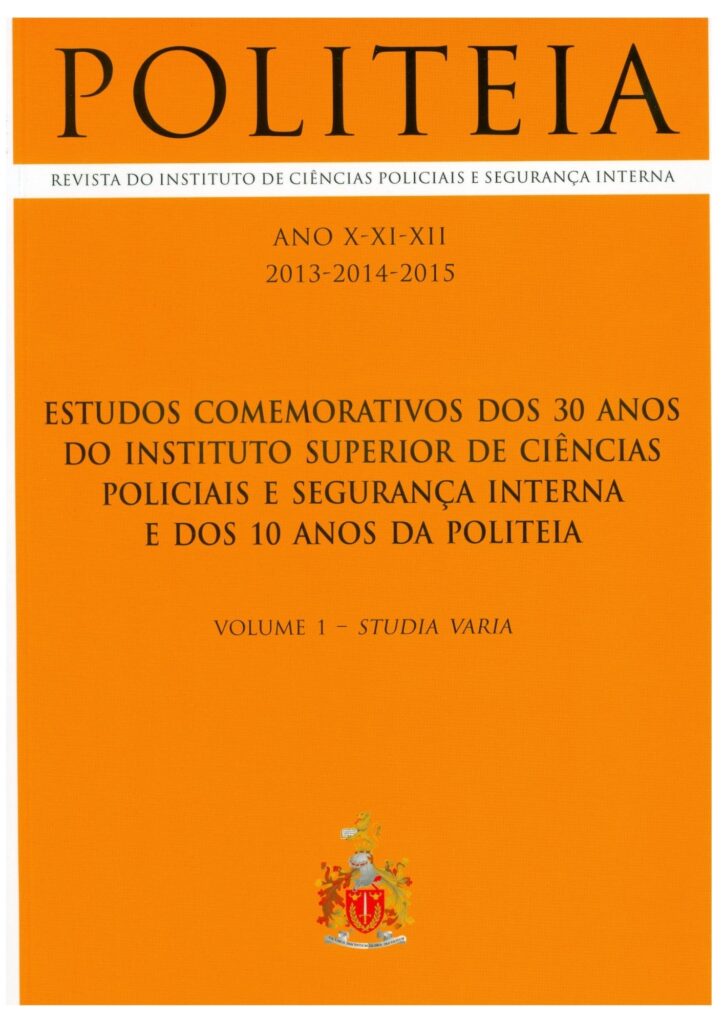O Princípio da Liberdade – Princípio da Legalidade da Detenção nos Tribunais Internacionais
Key Words
Este artigo pretende abordar o princípio da liberdade através da análise da legalidade das detenções nos Tribunais Internacionais. As expetativas e anseios que recaem sobre os Tribunal Internacionais são, de tal forma altos, que colocam a Comunidade Internacional de olhos postos nas suas decisões. Neste âmbito, é relevante fazer uma análise das influências dos sistemas da Common Law e da Civil Law nesta matéria, tendo em vista uma compreensão mais abrangente das problemáticas que se levantam. Assim sendo, e tendo em conta que a law in action é mais enriquecedora do que a mera análise substantiva, propomo-nos analisar as decisões do Tribunal Europeu dos Direitos do Homem, mas apenas como precedente daquilo que são e serão as decisões dos Tribunais Penais Internacionais. É sobre estas que primordialmente incidirá o nosso estudo.
This article intends to approach the principle of freedom by examining the legality of the detention in the International Courts. The expectations and aspirations that fall on the International Court are in such high way, which put the international community’s eyes on their decisions. In this context, it is relevant to analyze the influences of the Common Law and Civil Law systems, in this area, with a view to a more comprehensive understanding of the problems that can arise. Therefore, and because we think that the law in action is more influent than simply the substantive analysis, we will consider the decisions of the European Court of Human Rights, but only as a precedent of what are and will be the decisions of International Criminal Courts. This is the primarily focus of our study.
Versão original
Versão original
Outros artigos nesta edição
-
Editorial
Manuel Monteiro Guedes Valente
-
O futuro numa década: Os desafios económicos e securitários de Portugal
Sónia M. A. Morgado and Sérgio Mendes
-
A Cidade do Rio de Janeiro e a Segurança – Os Jogos Olímpicos de 2016
Maria de Fátima Magalhães da Rocha
-
Revolucionar ou Reajustar a Segurança Privada: Alterações e crítica à Lei n.º 34/2013, de 16 de Maio
David Marcos Borralho Pereira
-
Clarificando o Conceito de Segurança
Luís Filipe Jorge de Almeida Guerra
-
Invasões Biológicas e Segurança: uma frente descurada? Bio invasions and Security: a neglected front?
Jorge Fonseca de Almeida
-
Os Serviços de Informações: Actividade, Organização, Poder e Controlo
Hélder Valente Dias
-
A radicalização salafista-jihadista na Europa: o caso dos imigrantes de segunda e terceira geração conectados com o Islão
Marina Soares
-
A dupla perspetiva da norma fundamental em Hans Kelsen
José Joaquim Monteiro Ramos
-
Regime jurídico do correio eletrónico: dos momentos do correio eletrónico…à consagração de uma proteção jurídica uniforme pela Lei do Cibercrime
Nuno Ricardo Pica dos Santos
-
Fórmula Típica do Artigo 241-C do ECA Cibernético: ecos do Direito Penal do Inimigo?
Stenio Santos Sousa
-
O Princípio da Liberdade – Princípio da Legalidade da Detenção nos Tribunais Internacionais
Maria João Simões Escudeiro
-
Produtos Explosivos: Procedimentos e Notas Jurídico-Policiais
Francisco António Carrilho Bagina
-
Direito à Proteção Familiar
Alberto Peixoto
-
A Responsabilidade Social das Empresas em Tempos de Crise. Milton Friedman Revisitado
Maria Augusta Teles
-
Stresse e Burnout em Agentes da Polícia de Segurança Pública
Nuno Russo
-
Revisitando a Galeria de Criminosos Célebres em Portugal. História da Criminologia Contemporânea (1896-1908)
Nuno Caetano Lopes de Barros Poiares




